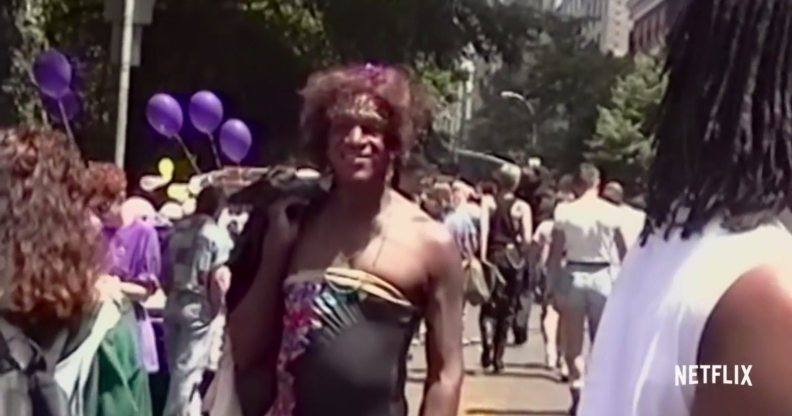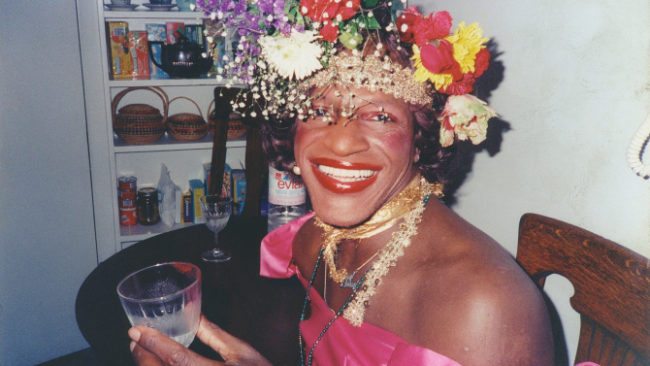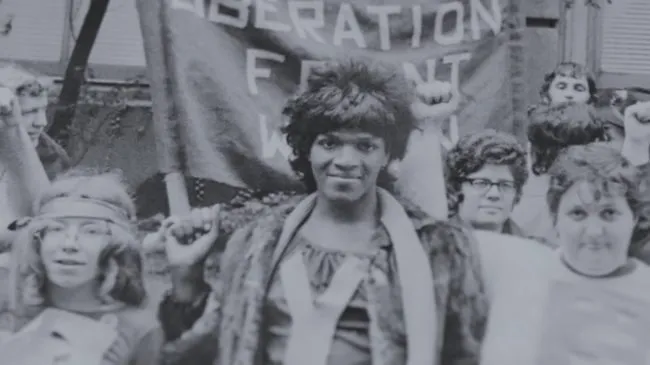‘Overlooked’ Stonewall pioneer Marsha P. Johnson finally gets New York Times obit

Marsha P Johnson (Netflix)
Stonewall pioneer Marsha P. Johnson has finally been given a obituary in the New York Times – more than 25 years on from her death.
Johnson, an African-American transgender woman and drag performer, made her name in the queer community in 1960s New York.
She is most famous for playing and a key role in the 1969 Stonewall Riots – an uprising against homophobic police raids considered by many the birthplace of the modern gay rights movement. The activist co-founded the Gay Liberation Front and the early trans advocacy group S.T.A.R, and whe would later also play a role in AIDS activist group ACT UP.
Although Johnson fought for queer acceptance, throughout her lifetime she remained an outcast – living on the streets and surviving through sex work, battling mental illness and suffering daily indignities.
Johnson died in 1992 under suspicious circumstances. Despite LGBT activists calling for justice, the death was largely ignored by both the media and the New York Police Department – who quickly ruled the death a suicide, and only reopened the case as a potential homicide in 2012.
But the New York Times finally granted her an obit this week.

Marsha P Johnson
It was part of a project to recognise “overlooked” women, whose deaths the male-dominated newspaper had not reported on during its 167-year history.
The New York Times obituary for Johnson acknowledges: “When she died at 46, under murky circumstances, in summer 1992, Johnson was mourned by her many friends, but her death did not attract much notice in the mainstream press.
“In the years since, however, interest in her legacy has soared. She has been praised for her insistent calls for social and economic justice; for working on behalf of homeless street youth ostracized by their families for being gay or otherwise not conforming to traditional ideas about gender; and, later, for her advocacy on behalf of AIDS patients. Some have called her a saint.
“Many transgender people have also come to hail Johnson, and her longtime friend and colleague Sylvia Rivera, as pioneering heroes.”
It adds: “Johnson was a key figure in the disturbances that followed a police raid at the Stonewall Inn, a gay bar on Christopher Street, early in the morning of June 28, 1969.
“Many legends have grown around the event — often characterized as a riot, but more recently described as a rebellion or uprising — but the evidence suggests that Johnson was among the “vanguard” of those who resisted the police.
“Stonewall helped to galvanize a more assertive, even militant, gay-rights movement [and] prompted the first gay pride parades.”

Susan Stryker, an associate professor of gender and women’s studies at the University of Arizona, told the newspaper: “Marsha P. Johnson could be perceived as the most marginalized of people — black, queer, gender-nonconforming, poor.
“You might expect a person in such a position to be fragile, brutalized, beaten down. Instead, Marsha had this joie de vivre, a capacity to find joy in a world of suffering.
“She channeled it into political action, and did it with a kind of fierceness, grace and whimsy, with a loopy, absurdist reaction to it all.”
The Times published obituaries of a further 14 women who were overlooked at the time of their deaths – including Qiu Jin, Sylvia Plath and Ada Lovelace
The outlet added that Overlooked will become “a regular feature in the obituaries section”, as well as “expanding our lens beyond women”.
Related: Nine incredible women to thank for LGBT equality

